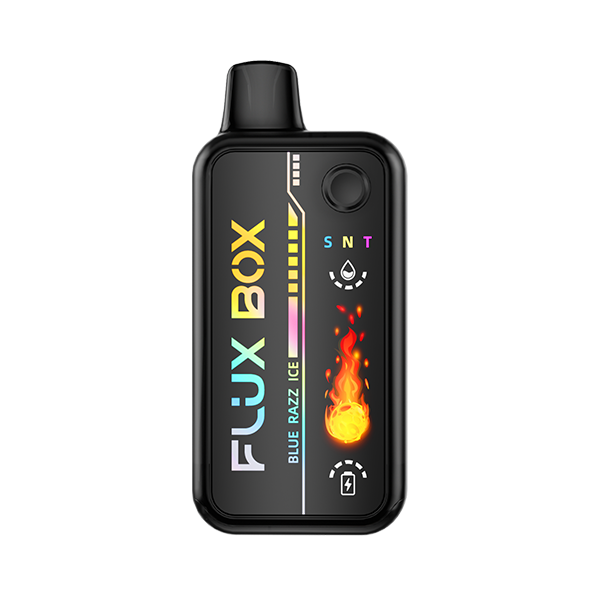
Are There Age Restrictions for Purchasing Disposable Electronic Cigarettes in Europe?
In recent years, the prevalence of disposable electronic cigarettes (e-cigarettes) has surged across Europe, raising concerns about underage access and usage. This discussion delves into the crucial topic: Are There Age Restrictions for Purchasing Disposable Electronic Cigarettes in Europe? Understanding the regulations surrounding disposable e-cigarettes is vital to addressing the concerns associated with youth vaping. […]
In recent years, the prevalence of disposable electronic cigarettes (e-cigarettes) has surged across Europe, raising concerns about underage access and usage. This discussion delves into the crucial topic: Are There Age Restrictions for Purchasing Disposable Electronic Cigarettes in Europe? Understanding the regulations surrounding disposable e-cigarettes is vital to addressing the concerns associated with youth vaping.
The popularity of disposable e-cigarettes among various age groups in Europe highlights the need for a comprehensive analysis of age-related restrictions. As these devices become more accessible, it becomes essential to examine the existing regulations and their effectiveness in curbing underage access.

European Regulations on E-Cigarette Sales
The landscape of e-cigarette regulations in Europe is multifaceted, reflecting the continent's diverse political and legal frameworks. European countries have implemented a range of measures to regulate the sale of electronic cigarettes, with a specific focus on addressing age-related restrictions for disposable e-cigarettes.
In general, European regulations emphasize the importance of protecting minors from accessing and using disposable e-cigarettes. However, the specific rules and enforcement practices vary significantly across nations. While some countries have stringent age verification processes in place, others face challenges in effectively monitoring online sales, leading to potential gaps in enforcement.
One common aspect of these regulations is the requirement for retailers to verify the age of customers before selling e-cigarettes, including disposables. This verification process often involves checking identification documents, such as national ID cards or passports, to ensure that the purchaser is of legal age. Physical retail stores are generally better equipped to enforce these regulations, as they can visually confirm the age of the buyer.
However, the rise of online sales has presented new challenges. Many disposable e-cigarette vendors operate online platforms, making it crucial for authorities to establish robust age verification protocols for internet-based transactions. Some European countries have implemented stringent online age verification mechanisms, such as electronic age checks and third-party age verification services. Nevertheless, online platforms, especially those based outside the European Union, continue to pose challenges due to jurisdictional issues and varying levels of regulatory oversight.
Additionally, discrepancies exist in penalties for non-compliant retailers. Some countries impose hefty fines or suspend licenses for businesses that violate age-related regulations, while others have less severe consequences, leading to inconsistencies in enforcement and compliance levels.
To address these challenges and create a more uniform regulatory landscape, European nations are increasingly collaborating and sharing best practices. Initiatives that promote information exchange, joint enforcement efforts, and standardized online age verification methods are being explored to establish a cohesive approach across borders.
As the e-cigarette market continues to evolve, it is imperative for European countries to adapt their regulations to keep pace with technological advancements and emerging challenges. By fostering international cooperation, enforcing stringent age-related restrictions, and enhancing online monitoring mechanisms, European nations can collectively mitigate underage access to disposable electronic cigarettes, ensuring a safer environment for their youth.
Compliance Challenges and Enforcement Measures
Enforcing age restrictions for disposable e-cigarettes presents various challenges to retailers and authorities alike. The online marketplace, in particular, poses difficulties in verifying the age of purchasers effectively. European governments and law enforcement agencies have implemented diverse measures to tackle these challenges, including stringent ID checks, penalties for non-compliant retailers, and public awareness campaigns. Evaluating the effectiveness of these strategies is essential in refining enforcement methods.
Impact of Age Restrictions on Youth Smoking Rates
The impact of age restrictions on disposable electronic cigarettes (e-cigarettes) sales is a topic of significant importance, directly influencing youth smoking rates across Europe. Several studies have delved into the correlation between stringent regulations and the prevalence of underage vaping, shedding light on the effectiveness of these measures in curbing youth smoking behaviors.
Research findings consistently highlight the positive relationship between enforcing age restrictions and reducing youth e-cigarette usage. Nations with robust age verification protocols and strict penalties for non-compliant retailers tend to experience lower rates of underage vaping. These regulations act as a deterrent, limiting the accessibility of disposable e-cigarettes to young individuals who are not legally allowed to purchase or use these products.
Moreover, studies indicate that age-related restrictions not only decrease the initiation of e-cigarette use among adolescents but also discourage them from transitioning to traditional tobacco products. By limiting access to disposable e-cigarettes, which often serve as a gateway to smoking, authorities create barriers that prevent young individuals from entering the world of nicotine addiction. This, in turn, has a cascading effect on reducing overall youth smoking rates, safeguarding public health and well-being.
Additionally, public awareness campaigns and educational initiatives emphasizing the legal age for purchasing e-cigarettes play a vital role in shaping social norms. When young individuals are informed about the legal consequences of underage vaping, they are less likely to attempt acquiring disposable e-cigarettes illegally. These campaigns not only discourage underage usage but also foster a sense of responsibility and compliance within the community.
However, challenges persist, especially concerning online sales. The digital landscape provides a platform for illicit e-cigarette vendors to operate beyond geographical boundaries, making it essential for countries to strengthen international cooperation. Collaborative efforts can help standardize online age verification processes and enhance cross-border enforcement, closing potential loopholes that might enable underage individuals to obtain disposable e-cigarettes online.
As countries continue to refine their policies and enforcement mechanisms, it is crucial to maintain a vigilant approach. Monitoring emerging trends, conducting regular evaluations of existing regulations, and adapting strategies based on new developments are essential steps in ensuring that age restrictions remain effective in reducing youth smoking rates and protecting the younger generation from the harms of disposable e-cigarette use.

Future Trends and Policy Recommendations
Predicting future trends in European regulations related to age restrictions on disposable e-cigarettes is vital for proactive policymaking. Policymakers should consider enhancing existing regulations, adopting uniform enforcement methods, and launching targeted public awareness campaigns. Collaboration between European nations is key to addressing the cross-border challenges posed by the online sale of disposable e-cigarettes to underage users.
Conclusion
In conclusion, age restrictions play a pivotal role in curbing underage access to disposable electronic cigarettes in Europe. A comprehensive approach, encompassing stringent regulations, effective enforcement, and continuous research, is necessary to protect the youth from the harmful effects of vaping. It is imperative for policymakers, researchers, and stakeholders to collaborate closely, fostering a safer environment for the younger generation and ensuring a healthier future for all.






























